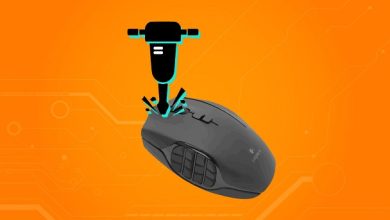The Future of Legal Operations: Integrating AI into Contract Review Processes

Legal operations are change enablers. The Contract Review AI technology has ended the days of lawyers wasting sleepless hours reading through contracts line by line to look for inconsistencies, risks, and compliance requirements.
The AIs built on these technologies are efficient rather than accurate, and that’s why they make the analysis of the contract even more accurate without investing the same effort.
The Evolution Beyond Manual Review
Reading through a contract line-by-line, checking against the playbook, and long rounds between stakeholders would constitute the traditional way of reviewing contracts. It could be thorough in process, but what does it do for business-operations bottlenecks? This type of treatment is what contract review AI changes. It could analyze full documents, ring up the salient clauses discovered, and notify potential problems within minutes rather than days.
Enhanced Risk Management Through Intelligence
Today’s intelligent AI doesn’t just catch on to certain words; It also attempts to comprehend the structure around that word. Complicated tools can determine whether a liability clause is sufficiently in your favor, detect invective being masked, and sort through hundreds of prior agreements to pinpoint anomalies in the wording. This kind of contextual reasoning puts the law department in a far better position to evaluate risk than even the most experienced reviewer in human terms.
From Cost Center to Strategic Partner
When legal teams implement contract review AI, they transcend their traditional role as transaction processors. With automated repetitive review tasks, legal professionals can dedicate their expertise to strategic initiatives—negotiating better terms, designing more effective contract templates, and providing thoughtful counsel to business units. This evolution reshapes organizations’ perception of legal operations from cost centers to value creators.
Cross-Functional Benefits Beyond Legal
Apart from just contract review, the application of artificial intelligence in legal departments can cut across the entire organization. Procurement teams will be able to capitalize on the insights generated from AI to get supplier terms into a standard form and to locate cost-saving opportunities. Sales will realize better speed and quickness in deal closure, where contracts are reviewed in several hours instead of weeks. Employee agreements will be analyzed more consistently with AI by the HR department, whereas finance will enjoy more clarity in financial obligations outlined in the contract portfolio.
The Human-AI Partnership
The most effective implementations recognize that contract review AI augments rather than replaces human expertise. AI excels at pattern recognition, consistency checking, and processing volume, while humans bring judgment, strategic thinking, and relationship management. Together, they form a more robust partnership than alone—AI handles the initial review process, identifying issues for human attorneys to evaluate and resolve.
Implementation Considerations for Success
Organizations implementing contract review AI should consider several factors: integration with existing systems, security protocols for sensitive data, customization capabilities to match specific industry requirements, and training programs that help legal professionals adapt to new workflows. The most successful deployments start with specific use cases—perhaps NDAs or vendor agreements—before expanding to more complex contract types.
The Road Ahead
The future of contract review AI extends beyond simple clause identification. Next-generation systems will likely offer negotiation guidance based on historical success patterns, predictive risk analysis for changing market conditions, and integrated workflow management across the contract lifecycle.
Conclusion
Contract review AI represents more than efficiency gains—it fundamentally reimagines how legal operations deliver value. Organizations strategically implementing these technologies position their legal teams as business accelerators rather than bottlenecks, creating competitive advantage through faster, more intelligent contract processes.





